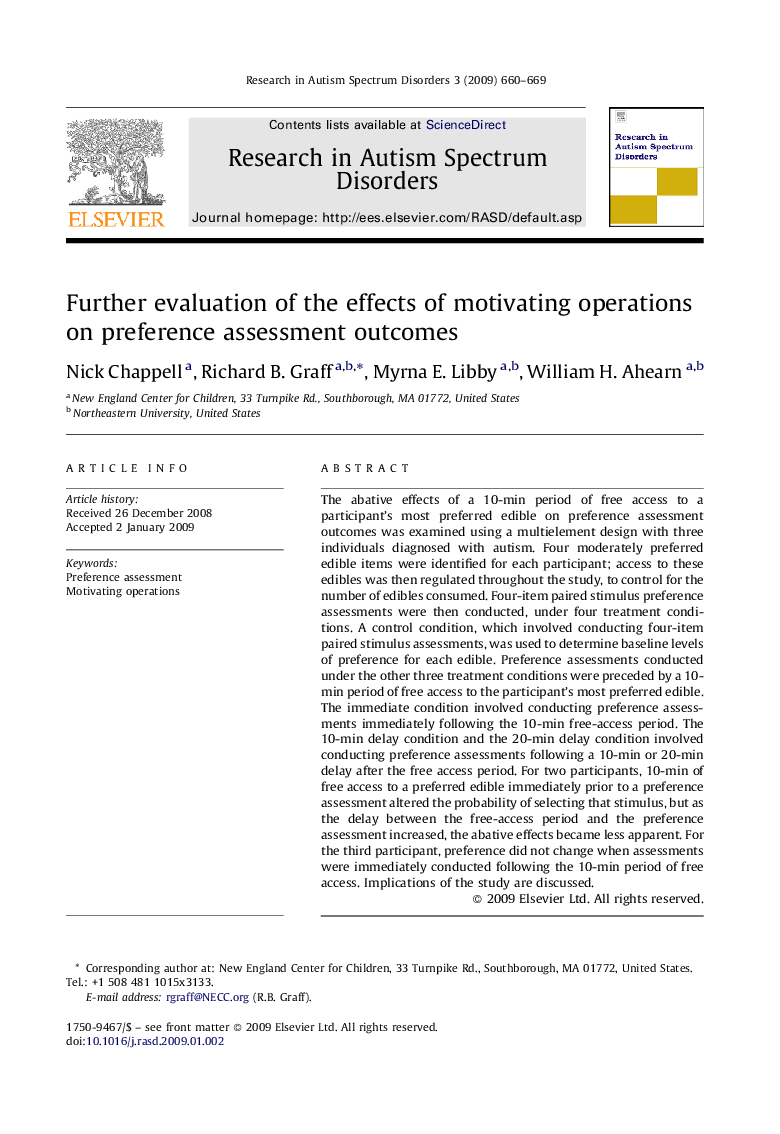| Article ID | Journal | Published Year | Pages | File Type |
|---|---|---|---|---|
| 370910 | Research in Autism Spectrum Disorders | 2009 | 10 Pages |
The abative effects of a 10-min period of free access to a participant's most preferred edible on preference assessment outcomes was examined using a multielement design with three individuals diagnosed with autism. Four moderately preferred edible items were identified for each participant; access to these edibles was then regulated throughout the study, to control for the number of edibles consumed. Four-item paired stimulus preference assessments were then conducted, under four treatment conditions. A control condition, which involved conducting four-item paired stimulus assessments, was used to determine baseline levels of preference for each edible. Preference assessments conducted under the other three treatment conditions were preceded by a 10-min period of free access to the participant's most preferred edible. The immediate condition involved conducting preference assessments immediately following the 10-min free-access period. The 10-min delay condition and the 20-min delay condition involved conducting preference assessments following a 10-min or 20-min delay after the free access period. For two participants, 10-min of free access to a preferred edible immediately prior to a preference assessment altered the probability of selecting that stimulus, but as the delay between the free-access period and the preference assessment increased, the abative effects became less apparent. For the third participant, preference did not change when assessments were immediately conducted following the 10-min period of free access. Implications of the study are discussed.
